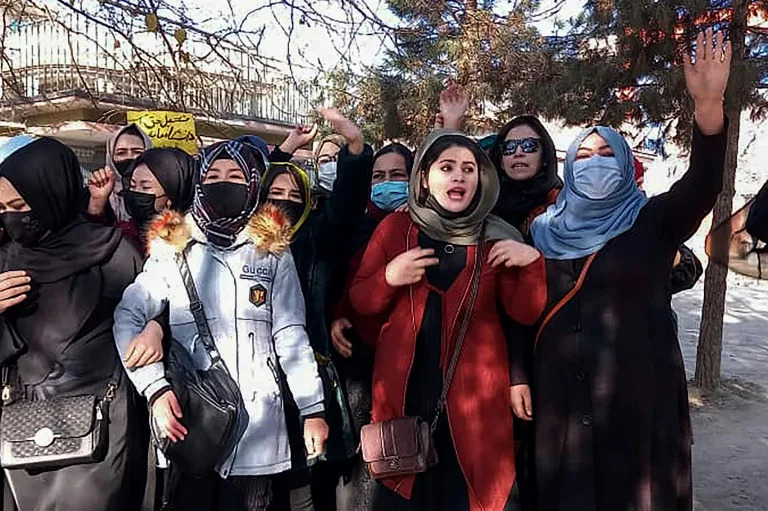The Taliban government of Afghanistan ordered non-governmental organizations this Saturday to stop employing women because they were not respecting the proper dress code, the same argument for which four days ago it excluded women from the country’s universities.
“There have been serious complaints about the non-compliance with the use of the Islamic hijab and other rules and regulations related to women’s work in national and international organizations,” says a notification sent to all NGOs.
A spokesman for the Ministry of Economy confirmed that the ministry sent the order to the NGOs.
“In case of non-compliance with the directive the license of the organization that was issued by this ministry will be cancelled,” the notification specifies.
Two international NGOs with whom AFP spoke confirmed that they had received the ministry’s statement.
“As of Sunday, we are suspending all our activities,” said a senior official from an international organization, which carries out humanitarian actions in various remote areas of the country, on condition of anonymity. “Soon we will have a meeting of the directors of all the NGOs to decide how to handle this issue,” he added.
Dozens of national and international NGOs work in multiple sectors in remote areas of Afghanistan, and many of their staff are women.
This announcement comes just four days after the Taliban government decided to indefinitely ban Afghan women from attending public and private universities in the country.
The Minister of Higher Education, Neda Mohammad Nadeem, explained in a television interview that he made this decision because the “students who were going to the university did not respect the instructions on the hijab.”
“The hijab is obligatory in Islam,” he insisted, referring to the fact that women in Afghanistan must cover their faces and entire bodies. According to him, the girls who studied in a province far from their home “also did not travel with a ‘mahram’, an adult male companion.”
– Rare manifestation of men –
On Saturday some 400 students from Kandahar, the cradle of the fundamentalist Islamist movement, boycotted an exam in solidarity with the students and held a demonstration, dispersed by Taliban forces, who fired into the air, a professor at Mirwais Neeka University told AFP.
This new attack on women’s rights shocks many young Afghans who have already been excluded from secondary schools and has drawn international condemnation.
Despite their promises to be more flexible, the Taliban have returned to their rigorous interpretation of Islam, which marked their first spell in power, between 1996 and 2001.
Since his return to power in August 2021, measures against freedoms have multiplied, mainly of women, who have been progressively excluded from public life and educational centers.
On March 23, the Taliban unexpectedly closed secondary schools just hours after they were expected to reopen.
Several members of the power said that there were not enough teachers or money, but also that the schools would reopen once an Islamic studies program was developed.
In addition to being deprived of education, women are also barred from holding government jobs or paid a pittance to stay at home.
They are also prohibited from traveling without being accompanied by a male relative and must wear a burqa or hijab when leaving their homes.
In November, the Taliban also prohibited them from entering parks, gardens, gyms and public baths.

